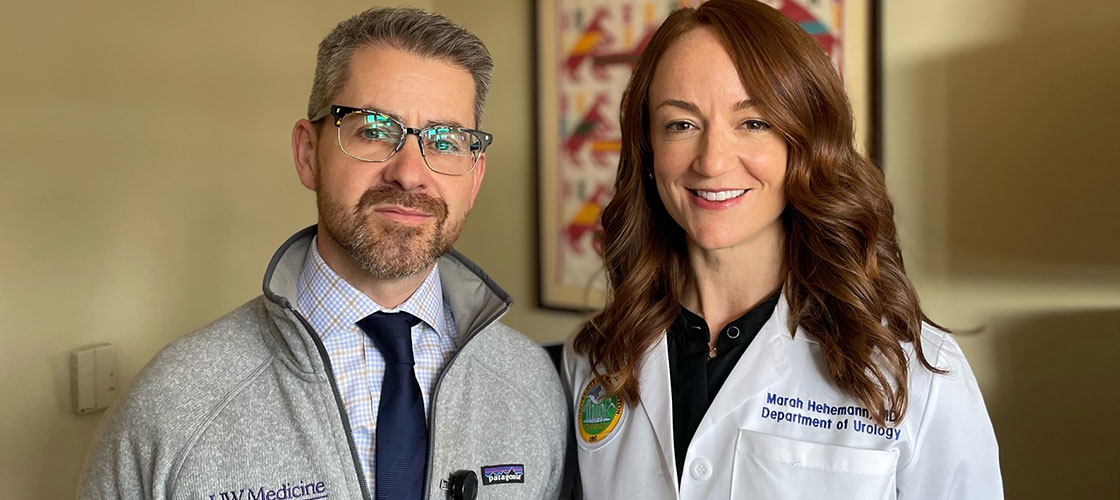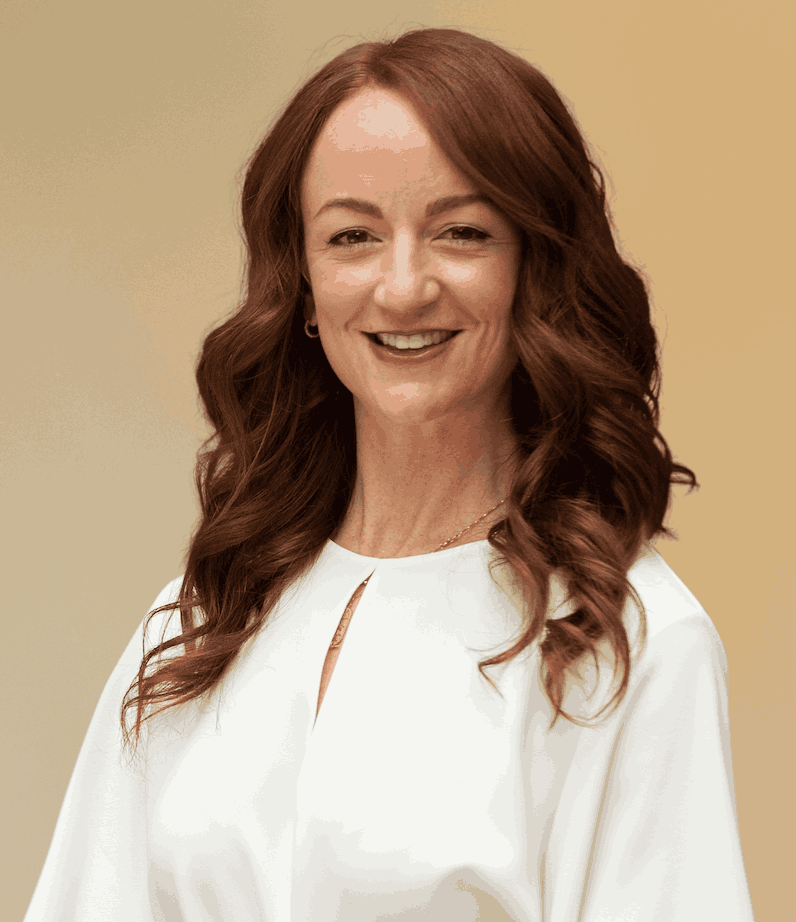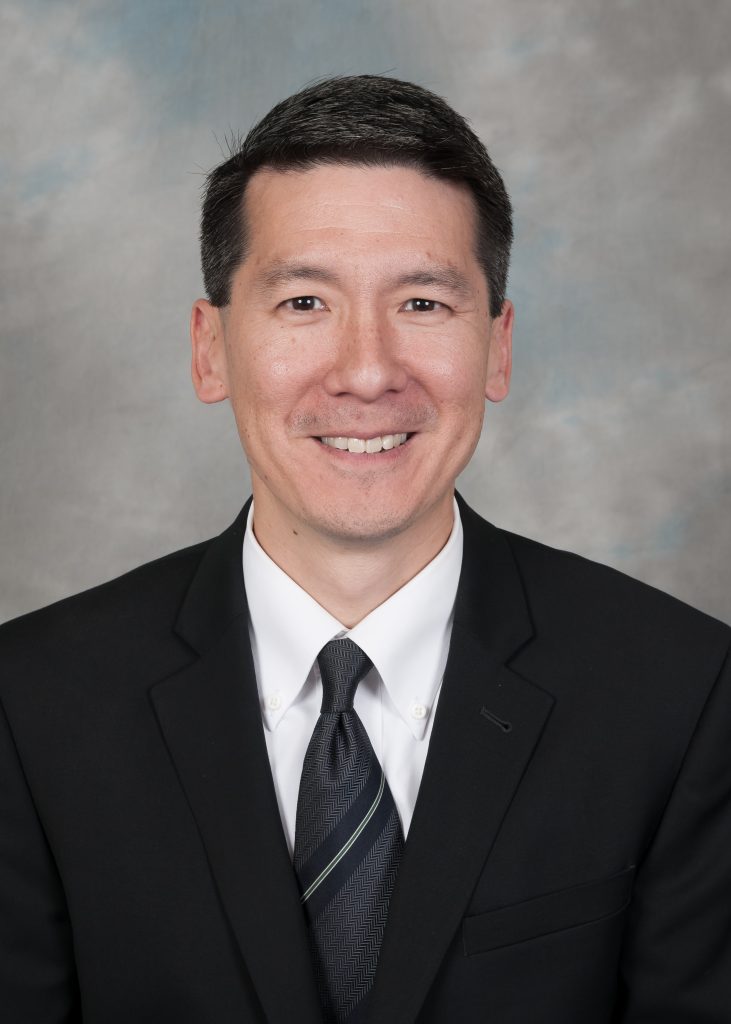A Space to Promote Men’s Health Equity
Men don’t access healthcare services as often as women. UW Medicine Men’s Health Center meets their needs and promotes routine healthcare.

A Space to Promote Men’s Health Equity
When it comes to healthcare, there’s one long-standing assumption that rings true: women seek medical care more often than men. And forgoing doctors’ appointments for routine or acute care can lead to lower quality of life and overall health.
To combat this disparity, UW Medicine makes it easier for men to access the medical services they need to stay healthy. Through the Men’s Health Center, practitioners address their patients’ most pressing health concerns.
“Men only use healthcare in a way that’s equivalent to women when they are teenagers, and their parents make appointments for them,” says Thomas Walsh, MD, MS, a UW Medicine urologist and director of the Men’s Health Center. “We founded the Men’s Health Center to create a place that focuses on the full range of male healthcare needs — to draw them into their own healthcare.”
A comprehensive clinic
Launched in 2013 and housed within the Department of Urology, the Men’s Health Center focuses on treating the urologic, sexual, hormonal and reproductive problems male patients can encounter. Together, our urologists, endocrinologists, internists and lab experts concentrate on the patient’s symptoms. They also address any underlying root causes, such as cardiovascular disease, diabetes, cancer and mental health concerns.
“We’ve assembled a multidisciplinary approach to care that offers the most state-of-the-art diagnostic testing and a full spectrum of care from medical treatments to surgeries to counseling,” Walsh says. “We’ve become a place for definitive care.”
Partnerships for better health
Walsh says the medical benefits to patients extend beyond the center’s specific services. Nearly half of the patients arrive without a relationship with a primary care provider. While addressing other needs, the center’s clinicians can connect men with primary care physicians, and they also take the opportunity to educate patients about their routine care needs.
“By opening our doors and creating a vetted and trusted environment where men can feel comfortable sharing their personal concerns, we can connect them to better care in general,” he says. “Now I make a simple referral to establish a primary care relationship almost every day.
“It’s surprising how few men know the connection between coronary artery disease and diabetes and any loss of libido or sexual function,” he continues. “So, we take the time to help them understand blood pressure control, diabetes and cholesterol.”
Our specialists address other important health services, including prostate and colon cancer screenings. And they emphasize the importance of healthy behaviors like physical exercise, a nutritious diet and mental health therapy.
Creating more diverse care
Alongside creating a comprehensive clinical experience, UW Medicine is committed to creating more diverse care teams, says urologist Marah Hehemann, MD.
“The urologic workforce does not reflect the ethnic makeup of the United States and lags behind other surgical subspecialties with regard to diversity,” Hehemann says. “One of my goals is to be a role model for individuals from underrepresented backgrounds to enter into this field.”
Until recently, less than 10% of practicing urologists were women, and only 6.5% were from underrepresented minority groups. The proportion of women subspecializing in Andrology is even smaller. However, through its recruitment efforts, UW Medicine’s Andrology fellowship program is changing the face of the specialty. For the fellowship class of 2024, 18 applicants — 35% — are women.
“It’s an exciting time to see the number of women in this specialty growing,” she says. “Women are uniquely positioned to treat men. We take longer with patients, and women can sensitively provide care around sexual dysfunction, infertility and quality of life.”
Embracing community engagement
Engagement and community awareness have been a focus of the center since its doors opened.
“When we founded the center, we wanted to do something different,” Walsh says. “We convened a community advisory board of former patients, community leaders, community organizers and healthcare system leaders to help us determine what services we need to provide.”
Since then, the 22-member community board has expanded the center’s efforts to raise community awareness. The group plans community events around various health topics and sponsors a healthcare-related radio show on iHeartMedia. They also provide continuing medical education events around men’s health awareness for healthcare professionals.
Ultimately, Walsh says, the center’s practitioners aim to improve the health of male patients. They strive to either address a patient’s needs directly or connect them with a clinician who can.
“Even if a patient has a problem that we don’t specialize in,” he says, “we can work together or direct them to someone who has seen it before and treated it.”





